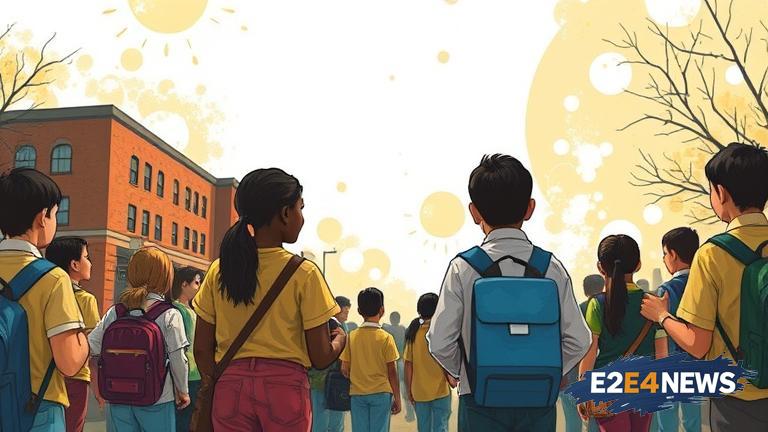The rise of charter schools in the United States has been a topic of debate for years, with proponents arguing that they offer a better alternative to traditional public schools. However, critics argue that without strict regulations, charter schools can become a Trojan horse for Trumpism, promoting a ideology that undermines public education and democracy. Charter schools, which are publicly funded but privately managed, have been known to prioritize profits over people, leading to a lack of accountability and transparency. This can result in a lack of diversity, equity, and inclusion, as well as a narrow curriculum that fails to prepare students for the complexities of the real world. Furthermore, charter schools have been criticized for their lack of oversight, allowing them to operate with impunity and disregard for the law. This can lead to a range of problems, including financial mismanagement, corruption, and exploitation of students and teachers. The proliferation of charter schools has also been linked to the erosion of public education, as funds are diverted from traditional public schools to support the growth of charter schools. This can have devastating consequences for communities, particularly low-income and minority communities, which rely heavily on public education. The Trump administration has been a strong supporter of charter schools, with Education Secretary Betsy DeVos being a vocal advocate for their expansion. However, this support has been criticized for being driven by ideology rather than a genuine concern for improving public education. The promotion of charter schools has also been linked to a broader agenda to privatize public education, which could have far-reaching consequences for democracy. By undermining public education, charter schools can limit access to information, critical thinking, and civic engagement, all of which are essential for a healthy democracy. Moreover, the lack of accountability and transparency in charter schools can lead to a lack of trust in institutions, further eroding the foundations of democracy. The impact of charter schools on public education and democracy is not limited to the United States, as similar models are being promoted in other countries. The globalization of education policy has led to a convergence of interests between corporations, governments, and ideologies, which can have devastating consequences for local communities. In conclusion, the proliferation of charter schools without strict regulations poses a significant threat to public education and democracy. It is essential to prioritize accountability, transparency, and equity in education policy, ensuring that all students have access to a high-quality education that prepares them for the complexities of the real world. This requires a nuanced understanding of the complex relationships between education, ideology, and democracy, as well as a commitment to promoting critical thinking, civic engagement, and social justice. Ultimately, the future of public education and democracy depends on our ability to resist the forces of privatization and promote a more equitable and just society. The debate over charter schools is not just about education policy, but about the kind of society we want to build. It is a debate about values, principles, and priorities, and it requires a thoughtful and informed approach. By examining the complex issues surrounding charter schools, we can work towards creating a more just and equitable education system that serves the needs of all students, regardless of their background or circumstances. This requires a commitment to social justice, equity, and democracy, as well as a willingness to challenge the dominant ideologies and interests that shape education policy. In the end, the fight against charter schools is not just about education, but about the kind of world we want to create. It is a fight for democracy, equity, and justice, and it requires a collective effort to promote a more just and equitable society.





